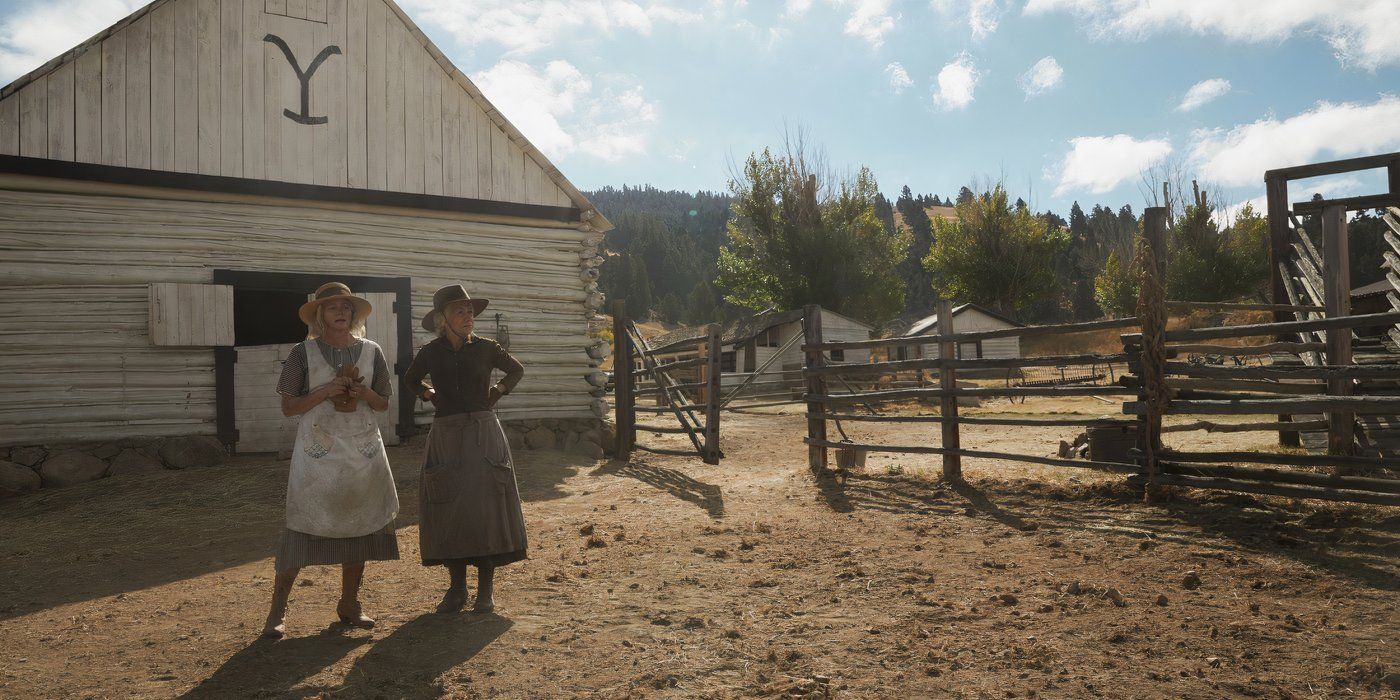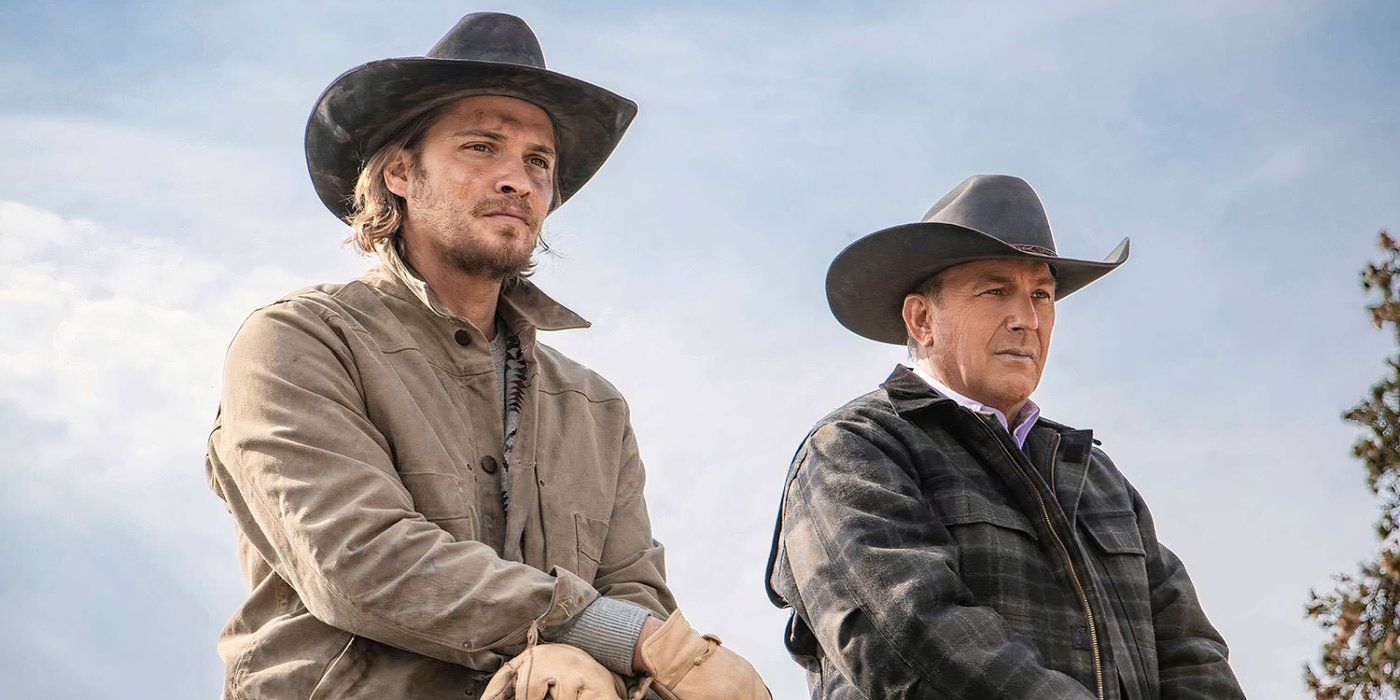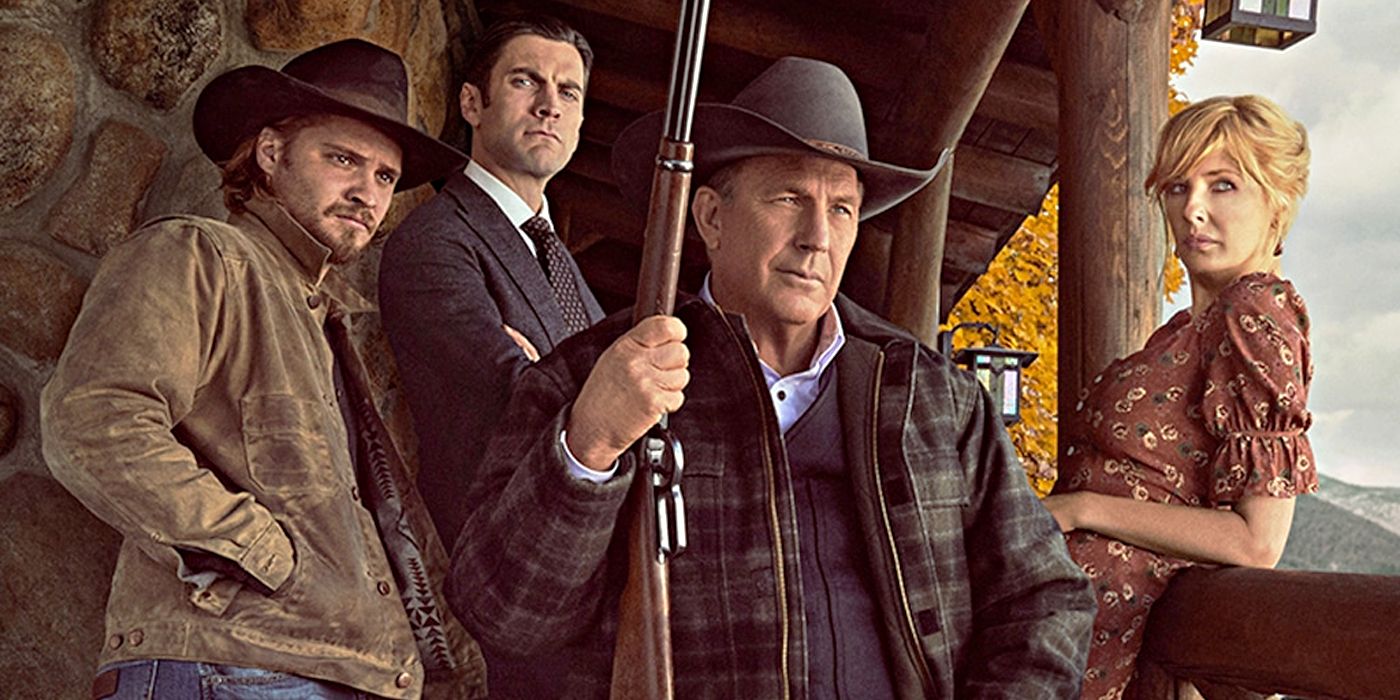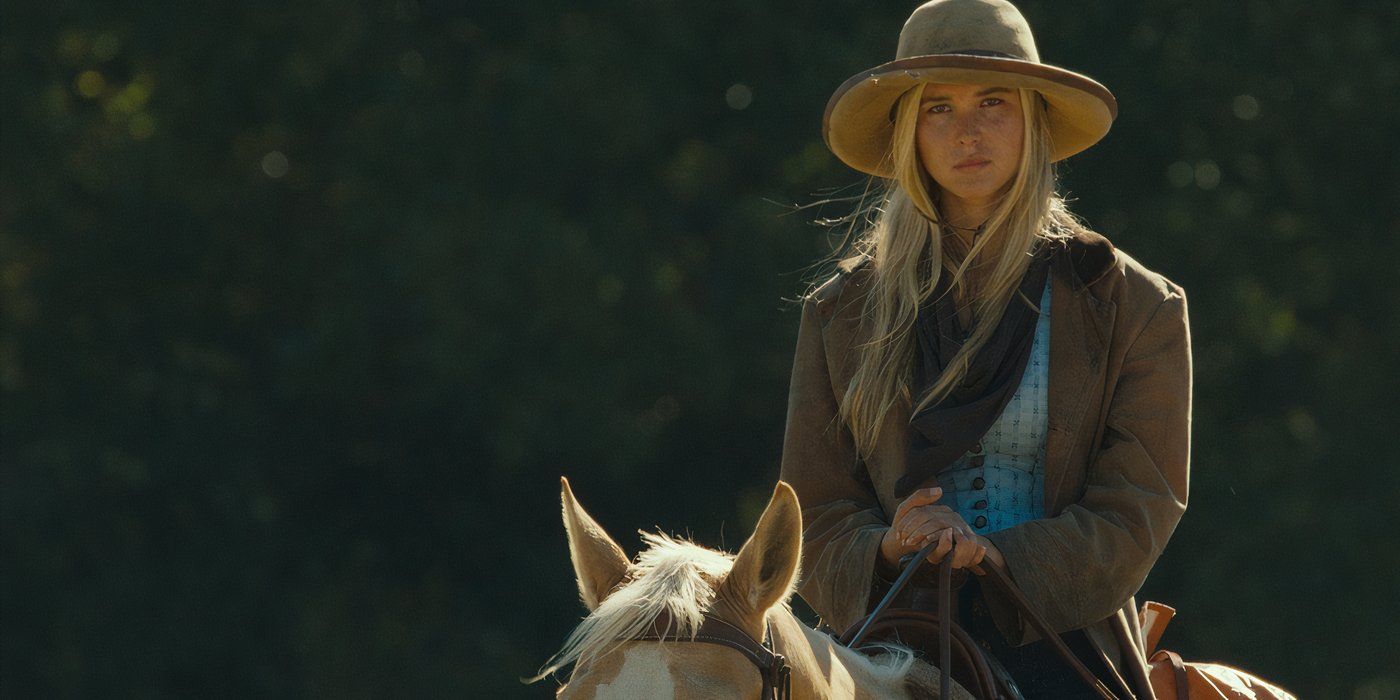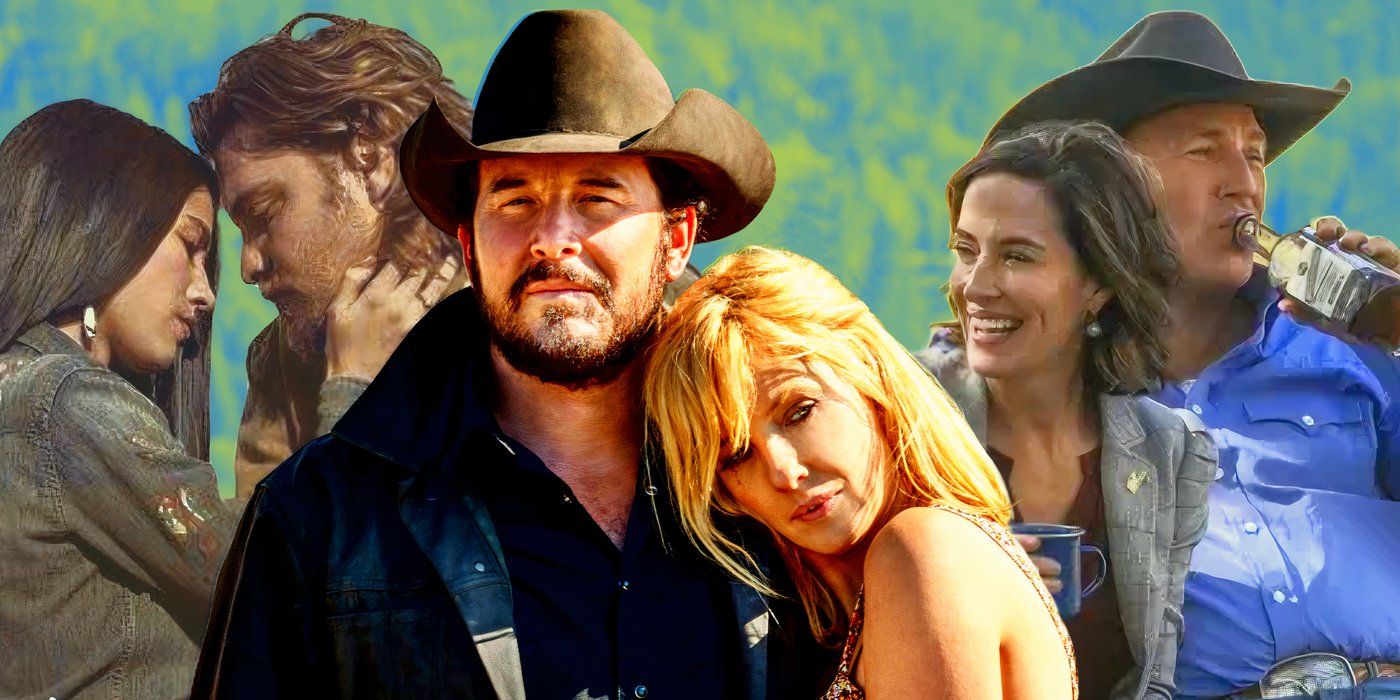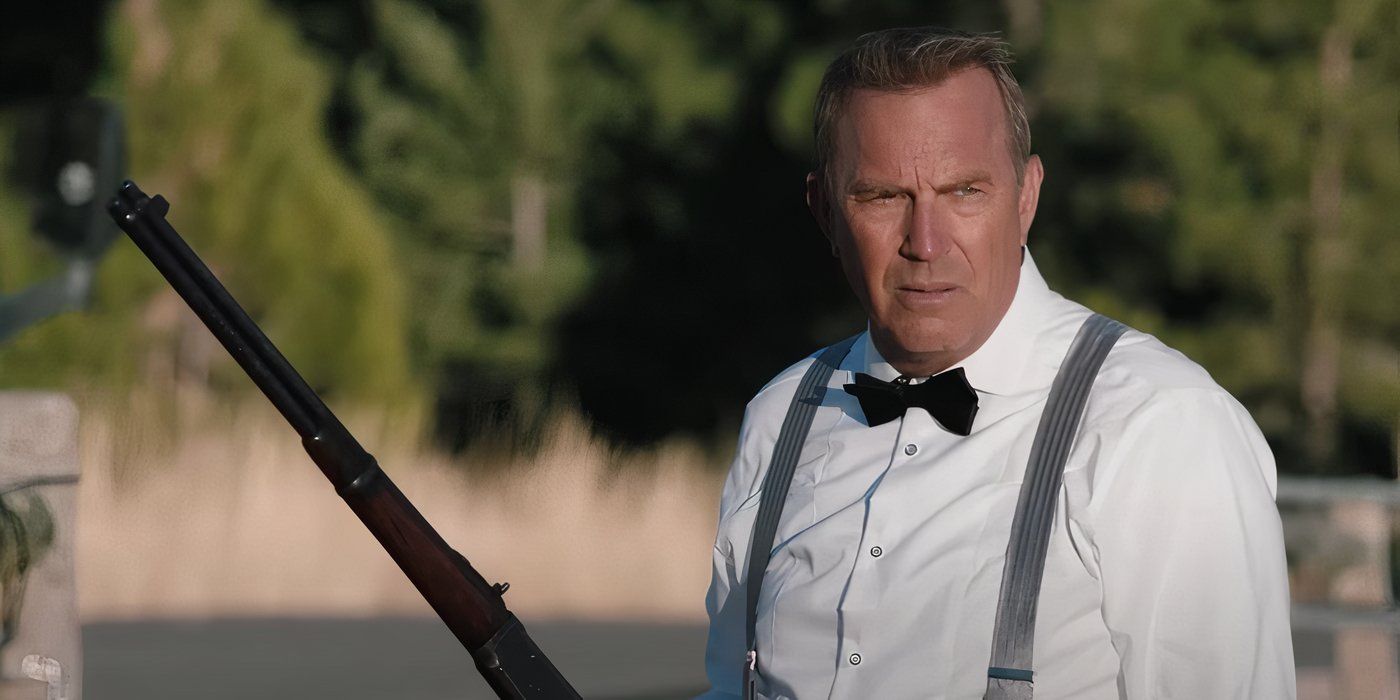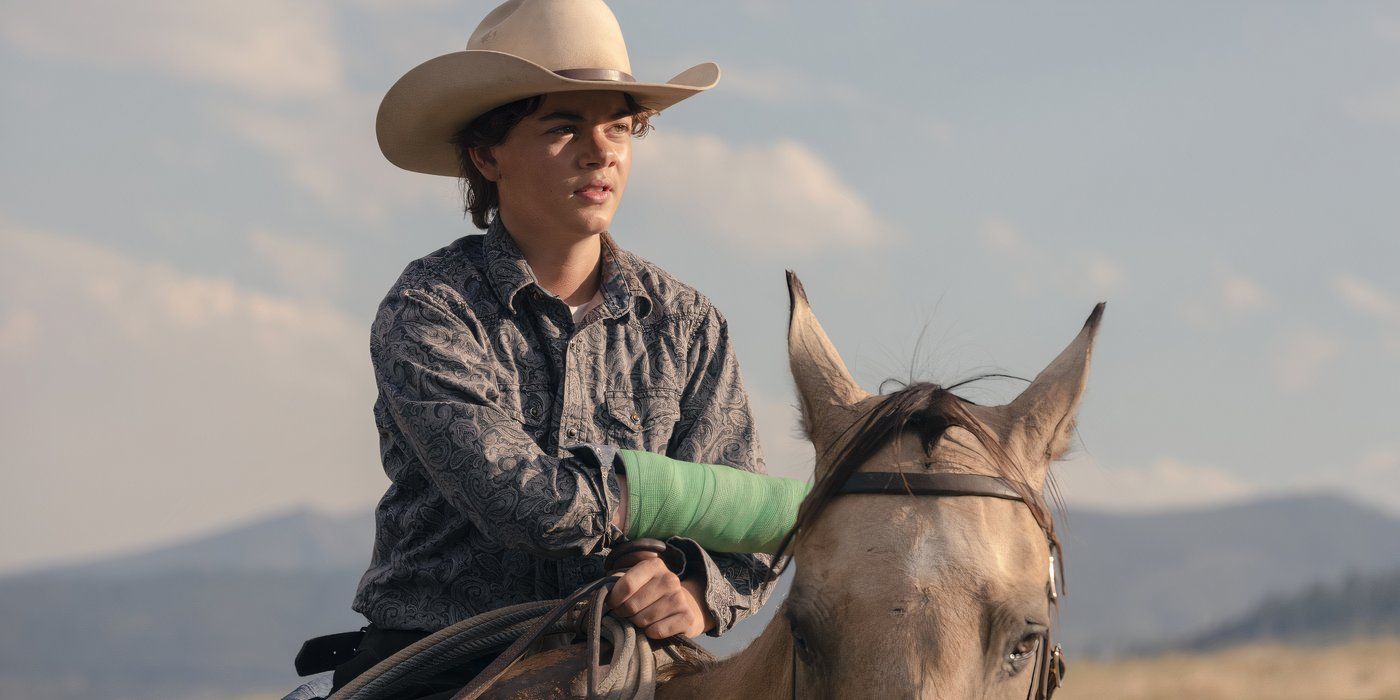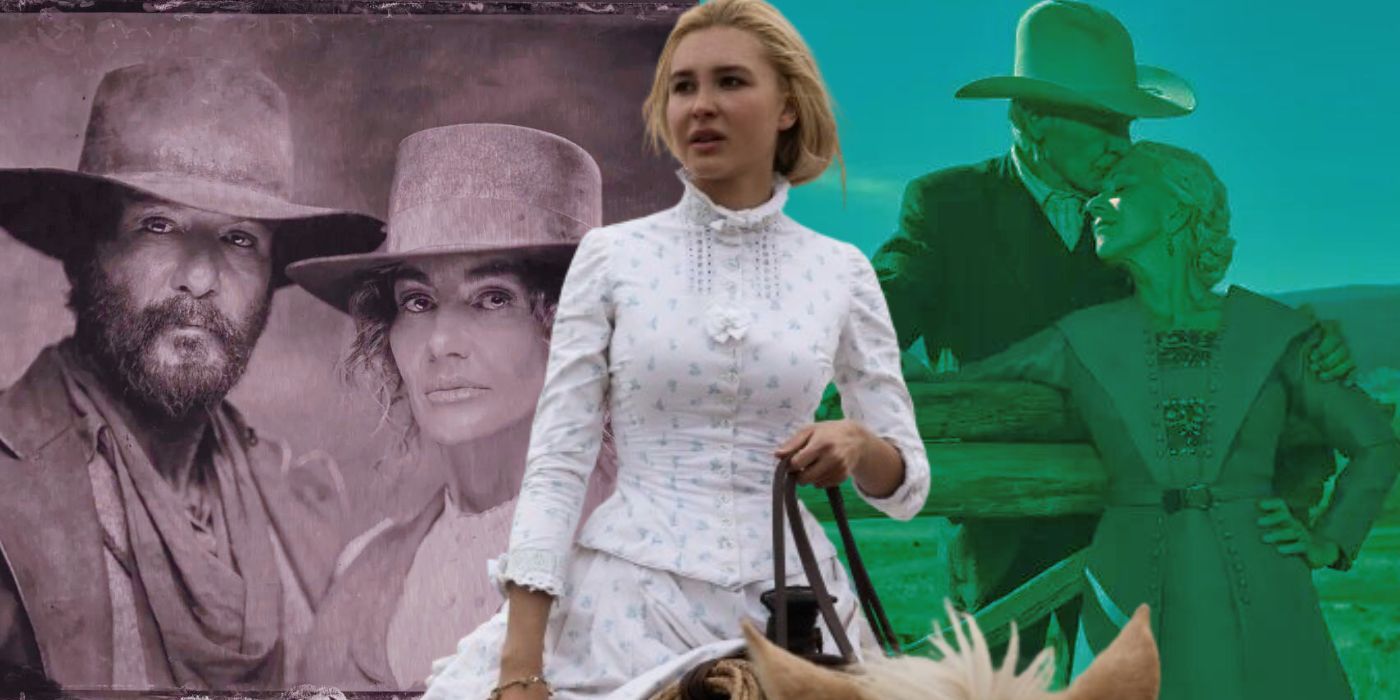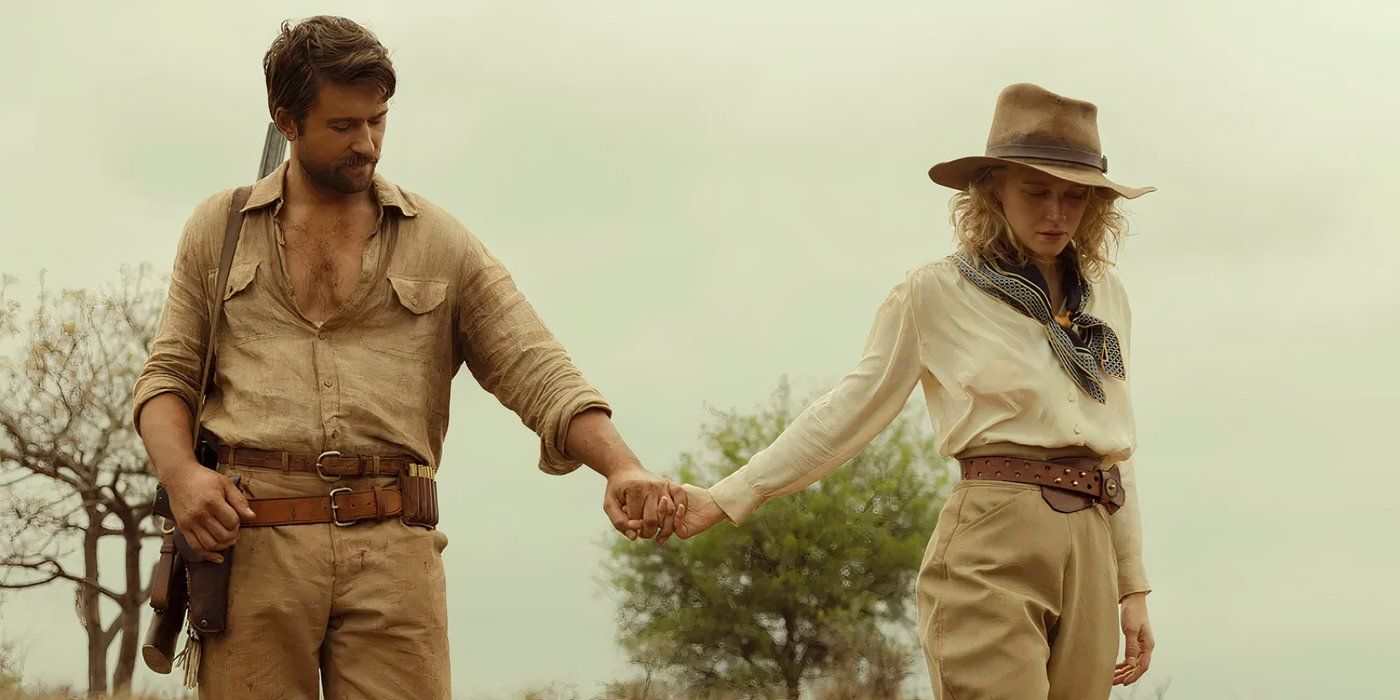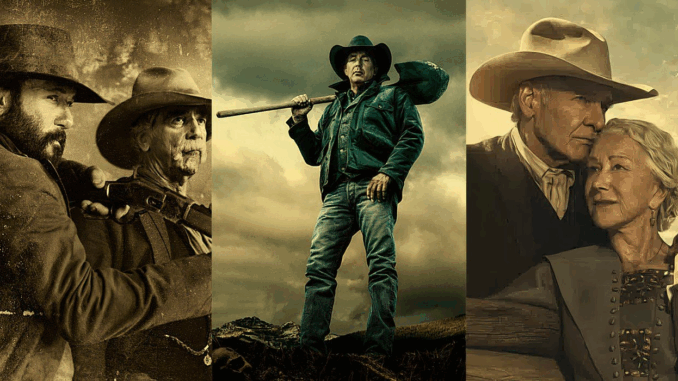
With the ability to finally play in a quintessential Western arena, it made sense to connect each spin-off’s storyline to his already mega-popular Western family, The Duttons. The first spin-off/prequel, 1883, was released in 2021 and followed the first generation of Duttons as they made the move westward. Sheridan had planned to continue this series but was told by executives that it would not last beyond one season. They changed their tune well after Sheridan had already killed all the characters. His reaction to this was the 1922 sequel/prequel/spin-off 1923, which followed the next generation of Duttons in prohibition-era Montana. Each series is great for different reasons, but all have undeniable connections to one another that only die-hard fans recall.
10The Duality of a Dutton Is a Consistent Theme
Appears In: Yellowstone, 1883, 1923
In all three Yellowstone shows there is a consistent theme of the Duttons that defines them. For the sake of having more control over their situations, the Duttons, in many cases, are equal parts elected officials for the law and unpredictable criminals lawlessly doing whatever is necessary to protect what’s theirs. Playing both sides of the law has allowed the Dutton Ranch to withstand threats on both sides of that line more effectively. Working on both sides has also meant multiple moments of characters wrestling with their own morality, as their intentions are always good, but circumstances often force tough decisions.
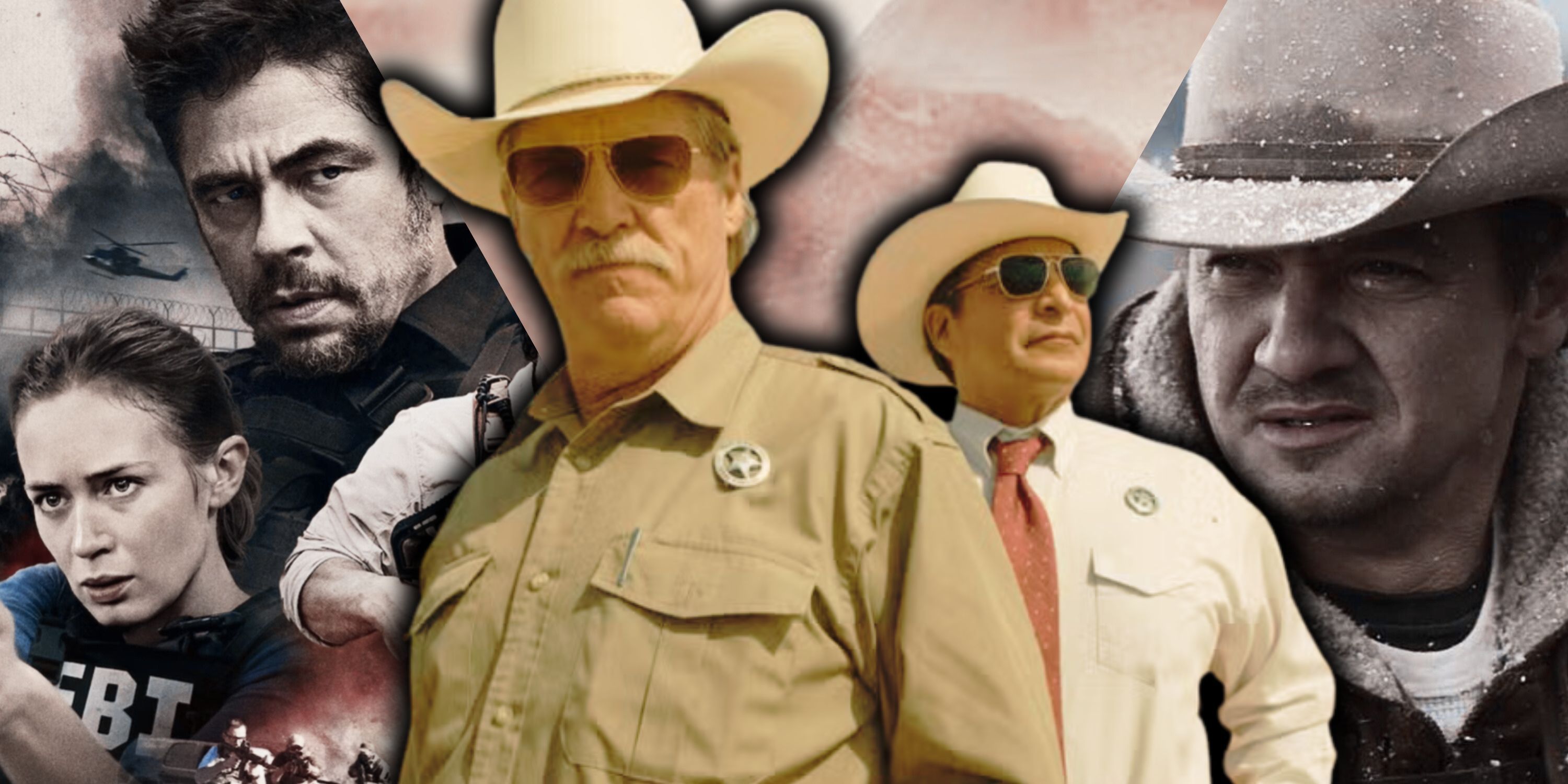
Taylor Sheridan has rose to fame thanks to Yellowstone, but he also created a stellar western trilogy with Sicario, Hell or High Water, and Wind River
9Farming and Ranching Is Their Livelihood
Appears In: Yellowstone, 1883, 1923
8There’s Always a Reluctant Hero or a Hesitant Heir
Appears In: Yellowstone, 1883, 1923
A running theme of Yellowstone and its spin-offs is that, at one point or another, audiences learn of the importance of a character in the Dutton family who goes against the grain of what their parental figures desire for them. Running a ranching empire or aspiring to a greater running existence and legacy of the family means that the next generation becomes more important than the current one. With a great many conflicts and powerful threats emerging on a regular basis, it makes sense why some Duttons may want to pursue a different path and a different life for themselves.
In Yellowstone, one of the first initial plot points that is introduced is the reluctance of the key character Kayce Dutton to conform to the wishes of his father to become the future of his family’s dynasty. Although this slowly changes over the course of the series, the estranged relationship Kayce has with his father is not uncommon for members of the Dutton family. In 1883, it was Elsa Dutton who often went against the wishes of her parents, looking to be more than just a proper lady of the family. In 1923, the story revolves around the idea of a prodigal son returning as it’s Spencer Dutton who is estranged from his family and reluctant to follow a path previously set for him by his family.
7A Knife Is Passed Down From Sister to Brother
Appears In: 1883, 1923
In 1883, Elsa Dutton eventually finds love after looking for it for most of the season. She finds it in the form of a Comanche warrior named Sam, and along the way also conforms to many of Sam’s cultural traditions. At one point, Elsa is gifted a Comanche knife that she carries throughout the rest of the series up until her death. In 1923, Elsa’s younger brother, Spencer, is revealed to be in possession of the same knife that Elsa once wielded. It might be a subtle nod, but it connects two Yellowstone series through two characters who are more connected than they appear.
6The Duttons Have Native American Allies
Appears In: Yellowstone, 1883
Elsa Dutton’s knife is not only a foreshadowing of familial possessions passed down, but also of family traditions that seem to carry throughout generations of the Dutton family’s story. While the Duttons and the Comanche people of Montana have often been enemies, fighting over the land they both inhabit, they are more often than not actually allies fighting the same enemies who pose a threat to their sacred territory. The theme of discrimination against Native Americans is consistent throughout Yellowstone and its spin-offs and comparisons are often made between the Duttons and their Comanche Tribe counterparts.
In 1923, there are not many nods to the Duttons allying themselves with the Comanche people of Montana, but this element is very predominantly covered in Yellowstone and 1883. With various threats to the Dutton Ranch and the possibility of losing their land, comparisons are often made by the Comanche people that the Duttons are as oppressed by exterior invaders as they are. Meanwhile, audiences are introduced to this shaky alliance early on in Yellowstone, as Kayce is married to Monica and the two have to balance the two worlds they come from throughout their relationship. As the series goes on, John Dutton allies himself with Thomas Rainwater, a casino owner and leader of a local tribe in contemporary Montana. As mentioned, in 1883, this theme is present as the Duttons are united with a Comanche tribe through the marriage of Elsa and Sam. This element of the three shows will likely be continuing in future seasons and spin-offs.
5A Strange New World Makes Its Way to the West
Appears In: Yellowstone, 1923
A constant, running theme of Yellowstone is the presence of encroaching outsiders from various other regions of America. From New York to Los Angeles, Montana locals are often fending off outside people for the sake of upholding their long-standing traditions. While defending their home is one thing, the Duttons also find themselves defending their philosophies and belief systems from overwhelming urbanization. The West being a younger territory of America than the East, it was also common for early Montana communities to push back against changes that were occurring elsewhere and making their way west.
4A Trusty Steed Goes a Long Way
Appears In: Yellowstone, 1883, 1923
3The Land Is God to the Dutton Family
Appears In: Yellowstone, 1883
If there is one thing that remains true for the people of Montana, it’s that the land is God. Whether for the wildlife that inhabits it, the livestock lifestyles that rely on it, or the reservation that has lived on it longer than anyone else, the land is God in Yellowstone in more ways than one. This is also an element of the Yellowstone universe that characters seem to know very well. They fight to defend this belief against those who look to destroy it. Serving different purposes for different characters, the “land is God” ideal of Montana remains a connection between all the Yellowstone series.
It’s said by multiple characters in the shows, but Beth Dutton makes the point of emphasizing this in Yellowstone when Rip asks her what she believes. She responds by saying that heaven is right here, and so is hell:
One person can be walking the clouds right next to someone enduring eternal damnation. And God is the land.
Meanwhile, this philosophy is reiterated by a Dutton when the story takes a look into the past. Elsa Dutton in 1883 witnesses death and proceeds to tell the audience that she doesn’t have the heart to tell this person that there’s no heaven to go to. “…Because we’re in it already. We’re in hell too. They coexist right beside each other. And God is the land.” This subtle but important connection between Yellowstone and its spin-offs might be its most important yet.
2War Heroes Become Hometown Heroes
Appears In: Yellowstone, 1883, 1923
A subtle nod to the kind of personalities and skills that Duttons might require to successfully defend their ranch is present in all three Yellowstone shows and thematically connects them. It can take serious fighting forces to defeat the encroaching enemies of the Yellowstone Ranch, which is why, more often than not, there is a character on each of the shows who has fought in more wars than just the one they’re fighting back home. Perhaps to some degree, the Yellowstone Ranch might not have survived multiple generations and become a ranching empire without someone like this there to defend it.
